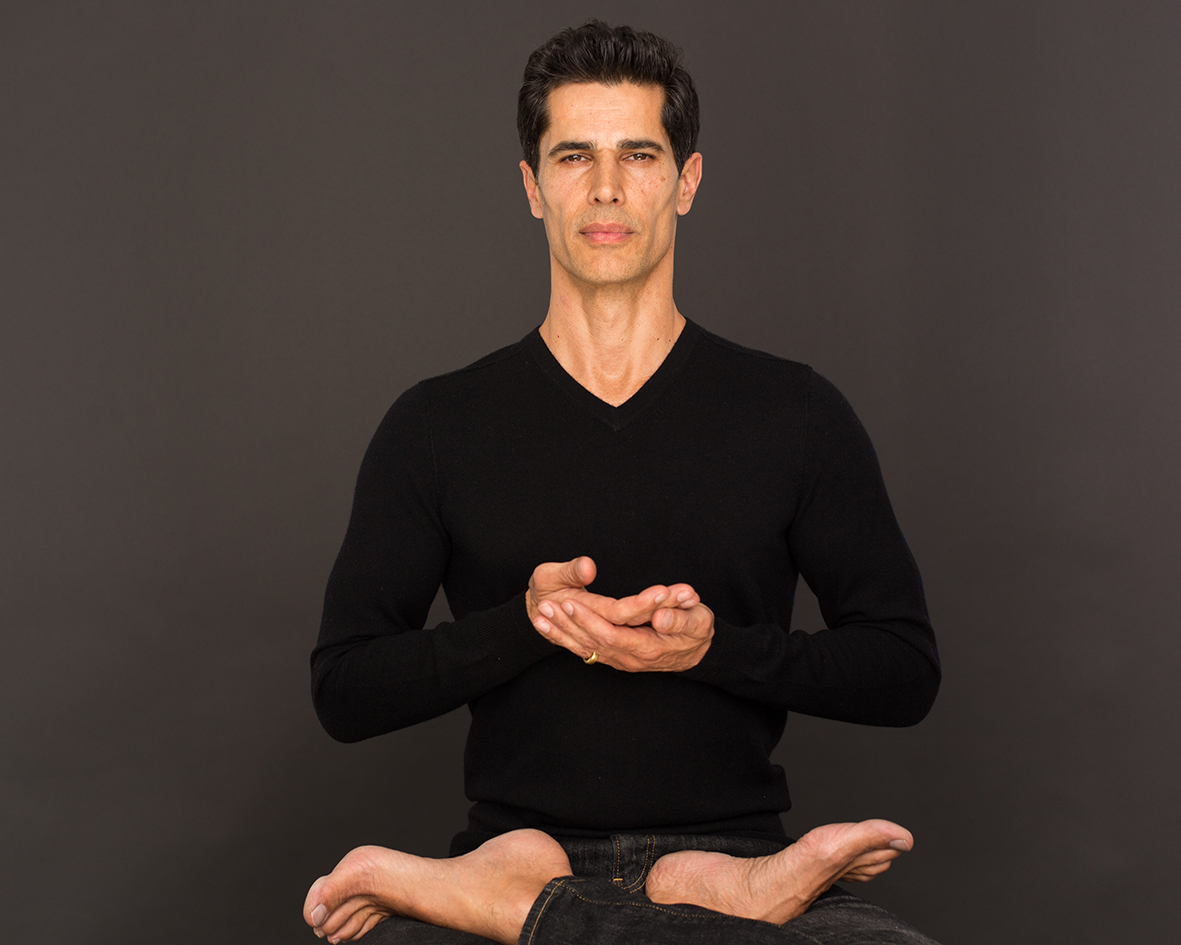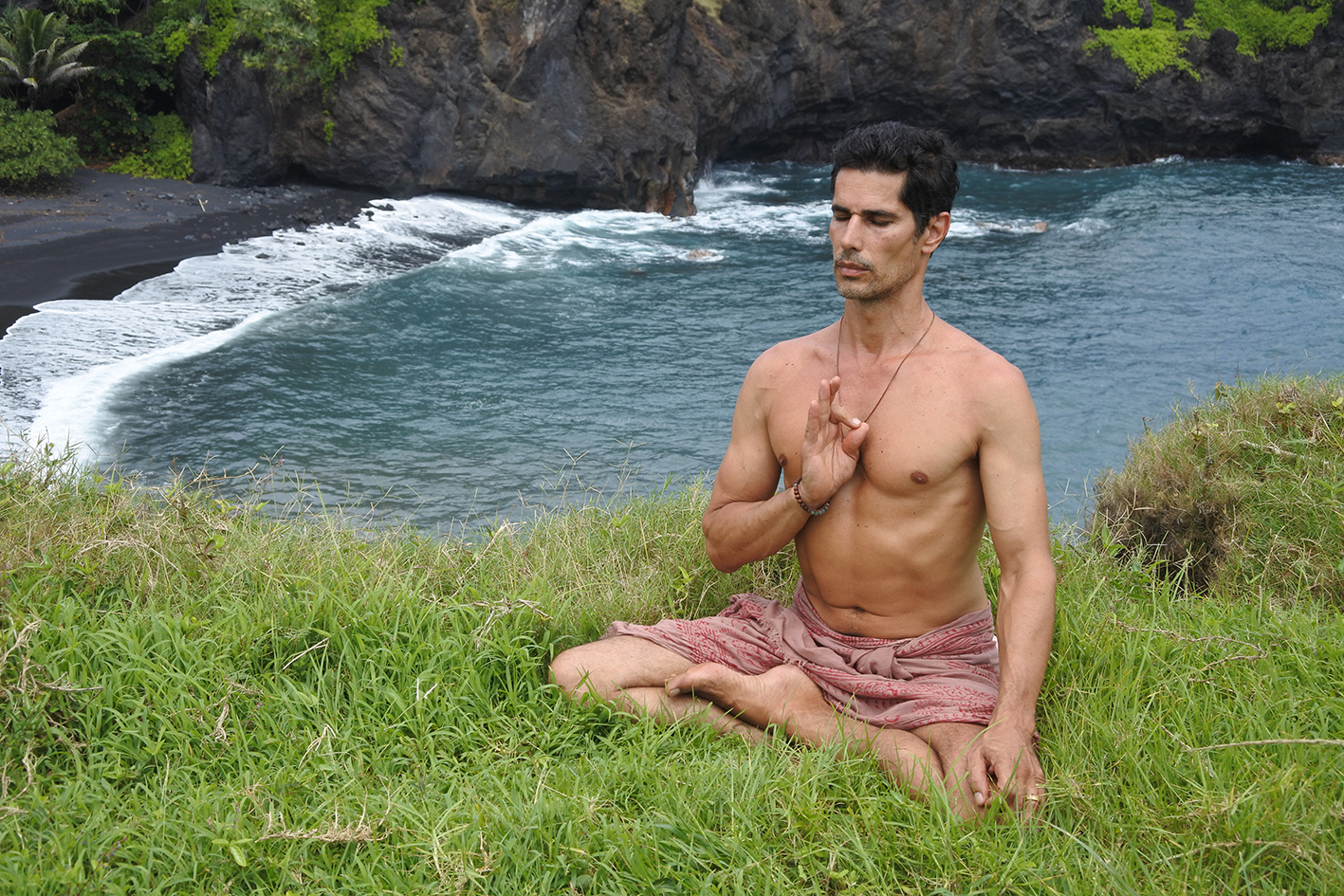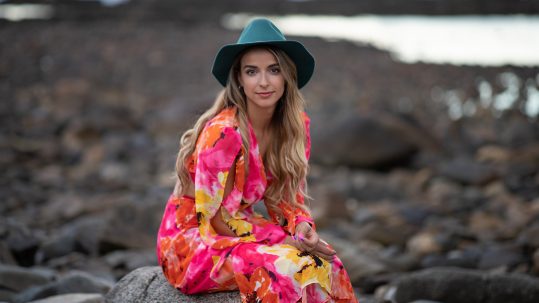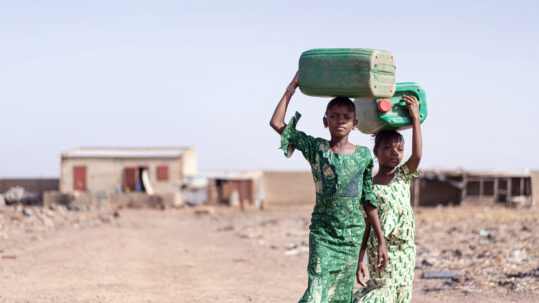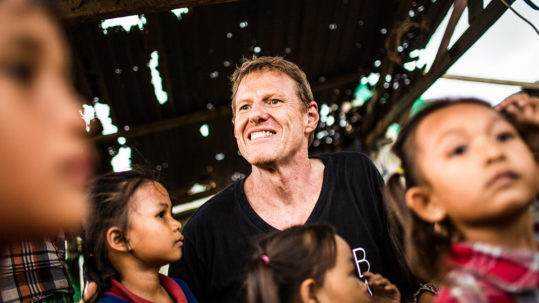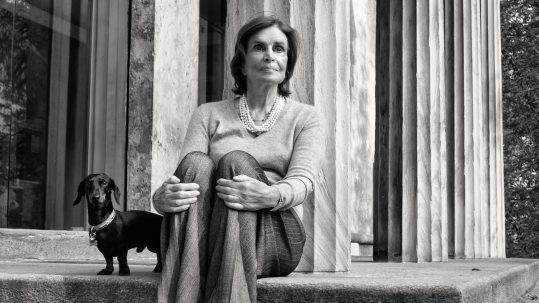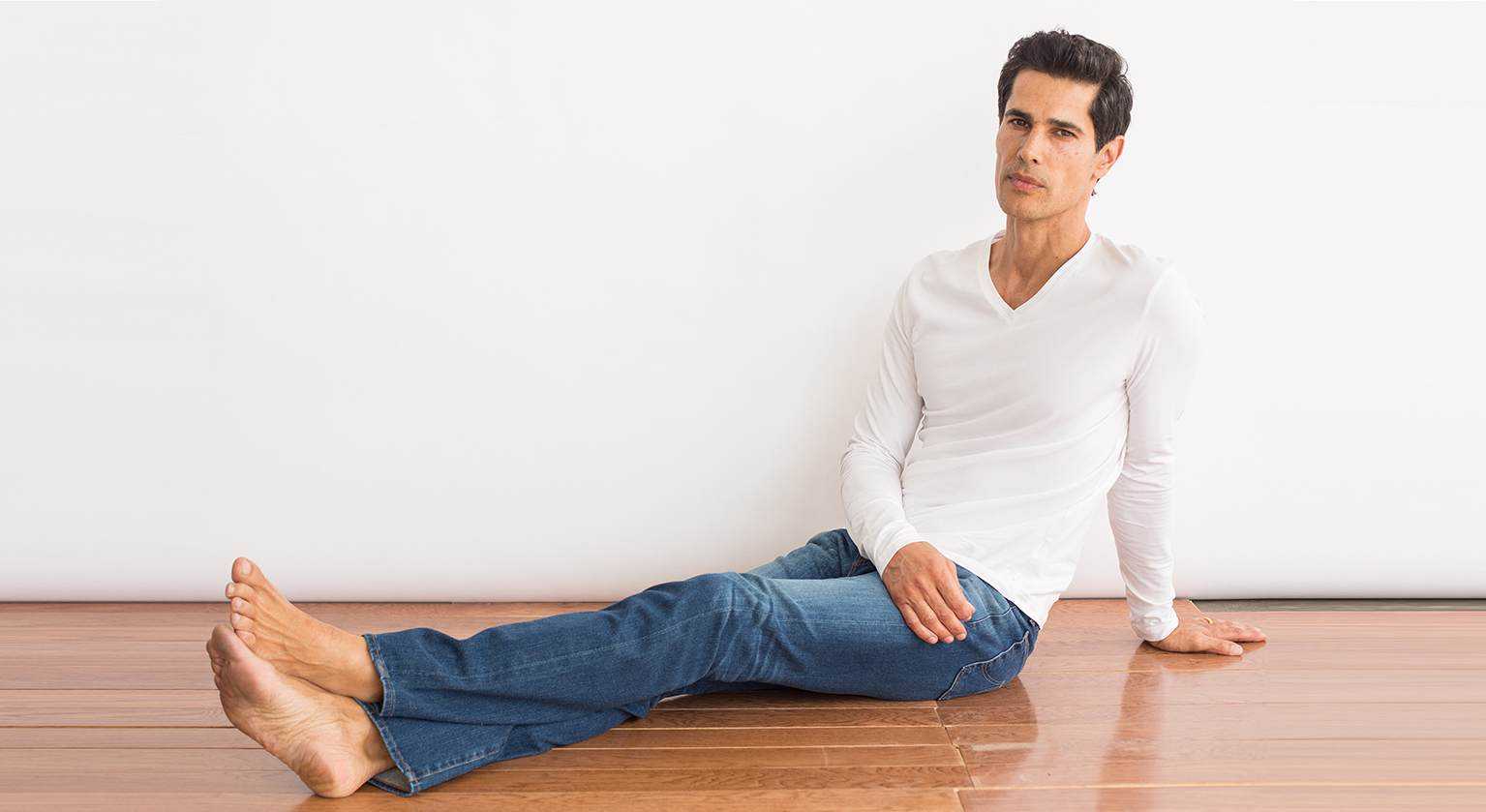
04 Oct Yogi Cameron
Photo: Emily Sandifer
YOGI CAMERON
Star of the runways from Milan to Paris, London or New York, Cameron Alborzian, one of the most celebrated top models of the planet, walked away from the fashion world to find his path as a Yogi. A conversation with an extraordinary human being whose sole purpose in life is to serve humanity.
By Victoria Adelaide | OCT 23. 2017
Victoria Adelaide: Yogi Cameron, can you tell us a bit about your journey and what prompted you to follow the yogi path?
Yogi Cameron: I was born in Iran. My mother is English and my father is Iranian. I lived there for about 10 years and then the big revolution started, so I had to leave quickly. My parents put me in boarding school. I could barely speak English and I couldn’t read or write English. At 10 or 11 it’s quite easy to learn to speak another language but it’s not easy to read or write, so I started to become good at sports because I wasn’t good at school. I ended up in a sports college around 17, 18. It was the biggest campus in Europe, in the middle of England and there was a sports college, a university and an arts college. I realized I preferred art to sports. One day, somebody asked me to do a fashion show for the arts students because they were designing the final clothes for the end-of-year tests. Something in my head clicked; I was training to become a professional tennis player and a teacher, but I didn’t like it. Sports suit a certain type of personality; if you want to be a winner, you have a certain personality and it’s aggressive, it’s competitive and I didn’t want to be competitive or aggressive, so I left. I went back to London and I decided not to go back to college. Then I was walking on the street when somebody stopped me and asked me if I wanted to become a model. It was good timing. Then, two or three weeks later, I was in Paris, on the runway with Jean Paul Gaultier and all the great people. I liked it, it was fun. I was in the fashion business for 12 years, from 1986 to 1998, I had a good time, worked with the greatest, and then suddenly something changed. I went to Nelson Mandela’s house in South Africa. I met him, he was incredible, he had just gotten out of jail after 27 years. He was so peaceful, I’m sure he had his troubles, but he was a man that you could look at as a great example of peace and love. Then I went back to New York, I stopped modeling and I started looking for other things to do. I did different things for about two or three years. I’d been doing Yoga for a while so I started to do Yoga training for six months and I decided to go to India to study Ayurvedic medicine.
VA: Before that you had a mentor.
YC: Yes, in Paris I had a mentor, for 15, 16 years. He was a guy who used to be in the fashion business; he left the fashion business in the sixties and he decided to go on the path of health and well-being. When I was 19, he was 46, something like that. He started to teach me natural medicine, spirituality. So, I was working in fashion and I was getting an education in natural medicine and spirituality. Obviously, something from the past is there, so when I came out of the fashion business, my head was already in the spiritual world. When I went to India, it was a very natural place for me to be. During my fashion days, I never went to India; for some reason, I never wanted to. Once I arrived in India, I thought, ‘Oh this is home, I have lived here before, this is my home, this is where I should be’. So, I started to study. Some 10 years went by, and then one day my Guru told me, ‘You know, it’s time for you to go back, teach, be with the people’. So, I came back to New York for six months, and then I moved to California. Word got out, and soon enough, I started to go in people’s homes and I started helping them with their health, I took care of them, and that is how I ended up meeting people like Ellen DeGeneres. I did that for a while, then I had a TV Show, and I started to write books. ‘The Yogi Code’ is my third book.
VA: Were you not scared of people’s reaction when you came back as a Yogi?
YC: That’s why I went away for so long, for about 10 years. When I went to study in India, after three or four years I was thinking the same thing. What are people going to think when I come back? They’re going to have this image of me from the past, and 10 years have passed but in their mind, they’re thinking, ‘Oh, you were the model who was successful’. Of course, in the beginning people may think this way, but over time they change. I find the people in fashion in fact more open-minded compared to people in the Yoga world, not those who practice Yoga but maybe the teachers and the whole community. It’s harder for them to understand it, because I think they came from something that wasn’t glamorous. I find it interesting actually that some of those people are the ones who don’t understand it. People in the fashion business accept everything, they don’t care.
VA: In our Western cultures, our education is mostly based on creating good bankers, good workers and good citizens. There is very little education regarding what is ‘within’. How do you think the educational system should be improved to help people be more in touch with themselves and what surrounds them?
YC: You’re right. We don’t have the foundations. In Eastern philosophy, you grow everything from the base. Education is first about who you are, your spiritual life, the journey within, the Divinity, God, that’s what Indian philosophy is about. You start to build on this foundation within, then you build all the other foundations, your work, your family, everything else. So, if you lose your family, if you lose your work, if you lose everything, you still have this foundation. Now people are learning that, but Yoga came around, and the problem with Yoga in the Western world is that the spiritual aspect isn’t there. Western culture only kept the physical aspect of Yoga and now everybody’s doing Yoga and everybody wants to be a teacher. This is the problem that we have now. Everybody wants to be the one giving the knowledge, but they only want to study for two weeks, three weeks. Part of what I’m teaching people is that they have to learn the theory first, they have to learn the practice, then they get the experience, and from the experience they get wisdom, that is the way it should be. But people don’t want to learn the theory, because they say, ‘Oh, the theory is boring, can we just have the experience?’, I say, ‘If you don’t know the theory, you don’t know how to do the practice properly, then you may hurt yourself’. Spirituality is the first element in children’s education, let’s say, then health, then we can build on health and spirituality because the individual is already growing up with a balanced mind. So, imagine you’re teaching two-year-olds, three-year-olds, four-year-olds, five-year-olds everything about spirituality, they get to know themselves well, they start to understand themselves, they know how to control themselves, they know how to keep a healthy body with a healthy diet, they don’t have addictions, so from this foundation you can build anything. These kids can now go into the world and they know how to take care of themselves because they know who they are. Instead of that, they’re coming into the world, parents are busy, they go to school, they learn geography, history, it’s not useful. If you have the foundations of spirituality and health, you will know what to teach that child so he can become great. And then you realize that there are so many paths, the kid can pick any, he can go into politics, religion, health, he can do anything; but it has to be balanced. It’s not about getting something for ourselves, to rule the world, or to be competitive, it’s realizing, ‘Oh, I’m just one of many’, instead of ‘I am great’’. So, this is what we are missing in Western culture, but that’s not going to be fixed, because people who can fix it… well it’s too much work…
Photo Gallery Credits: Photo 1: Emily Sandifer / Photo 2: Yogini Jaima
VA: What is Ayurveda and why does it work together with Yoga?
YC: They are sister sciences. Ayurveda is all about your body and your mind, because whatever we put in our body affects the mind. If you drink a soda, it goes into your body but the sugar and everything you just had affects the mind. Ayurveda is everything about the diet, herbology, lifestyle, within the body. Yoga is all about the mind and beyond the mind. This is where they are connected because the body and the mind are attached to each other and they affect each other. That’s why Yoga and Ayurveda have to be practiced together, because if you don’t know how to keep your body healthy, you won’t know how to keep your mind healthy and that way you can’t practice Yoga.
VA: So basically, if we don’t eat properly, no need to do Yoga?
YC: It’s of no use. Because if you’re not healthy, what are you doing in Yoga practice?
VA: In what way is Ayurveda different from regular medicine?
YC: Ayurveda looks at nature and says, ‘You are nature’ and the outer environment, the air, the sun, the sea, the water, that’s also nature, so you have nature here, which is you, and you have nature there, outside. Ayurveda gives you the tools to balance ‘this’ nature with ‘that’ nature. So, when the weather changes, you know how to find balance, when you’re walking into a noisy room you know how to find balance, when you’re in a restaurant you know how to find balance, so it’s giving you the tools to know how to control this environment of yours in relation to the environment outside, because you can’t control the environment outside but you can control this environment of yours. It’s giving you all the tools that you need that are necessary for finding the balance between both environments every time you go somewhere or do something. The difference with modern medicine is that Ayurveda heals the root cause of the disease and not the effects, whereas modern medicine is treating the effects. Modern medicine is good for emergencies, when you have an emergency it’s great; Ayurveda won’t work for you. When you need to go to the hospital, you need surgery, you need all that, you use modern medicine.
VA: How do you use Ayurveda to treat a client?
YC: We look at the client, we look at the eyes, the skin, the body, the way somebody talks, the tongue, we look at absolutely everything, that way we can determine what’s happening inside the body. The whole external aspect of your body is telling a story of what’s happening inside your body, so once we know that, then we can start to treat the person according to what we see.
VA: You work with Yogini Jaima on certain things. How do you dispatch the tasks?
YC: When we come into a room, we look at who is in the room, who these people are. If we’re giving a talk, it’s easy because we cover different forms of knowledge that we have, but if we’re teaching people in a room, then we look at the people: who are these people, what are their abilities, what do they say they want but what do they actually need? Because you want to be able to teach people things that they can take away and then do at home, and get the benefits from. At the moment, we’re teaching ‘The Yogi Code’, so we have a schedule one day, two days, three days, each one of us teaches different parts of the teaching, but we can both teach all of it, so one week I go to the Omega Institute, and I teach the whole three days alone.
VA: Are there some people you cannot help at all, does it happen?
YC: Yes, it can happen, definitely. When you work with people, everything is energy, I have a certain energy, Yogini Jaima has a certain energy, you have a certain energy. When people work with other people, there has to be a nice flow that they can fit in. Sometimes for example, I don’t attract certain types of people, I need to work with people who listen, who follow instructions, who take action, so I put this intention out there, so most of the people that I get are these kinds of people. Once in a while, you have somebody who comes to you for help, but you realize that you can’t do anything for that person because she is not open to your energy; she needs to go to somebody else with whom she can open herself up. I don’t open people up because that is a big responsibility. There are people who do that, they open people up and the person becomes very emotional, and then you have to know how to guide this person step by step; you can’t leave that person because she is very vulnerable. So, I don’t do that. I wait for the person to open up and then I say, ‘Oh sure, come, now I can help you’. Because if people don’t take the first step, then you become their savior and I don’t play that role. It’s like when I train with my Guru, this is the work I get, and then I do it, and if I do the work then I get more work, and if I don’t do the work I don’t get more work. That is the relationship I like to have with people.
VA: Osho’s philosophy is that life has no purpose and Krishnamurti says the opposite. What do you think?
YC: I was in Puna, and I was going to the Osho Center, then I heard that at the Osho Center you can drink wine, you can do many different things you can’t do in ashrams. Then when I met one of the swamis, he said to me that the philosophy of Osho was to be, to just ‘be’. In being, if you just want to be, you still need a practice keeping oneself in the state of being because the mind is slave to the senses and the senses are pulling you another way. So, if you are just saying, ‘be’, he would just say, ‘be wherever the senses are’. I said, ‘Well, some people don’t want to drink, but they’re drawn to drink and then they get drunk’, so then he was like ‘Well when they’re drunk, that’s being’. So, it’s not the wrong philosophy but it’s not a Yogi philosophy. It depends on you because there are many different paths on Yoga, there’s Yana Yoga, Bhakti Yoga, there’s the tantric path, Karma Yoga, so there are many different paths which are already set up. The reason why Yogis set these different paths out, it’s because they say, ‘You and me, we have different personalities and we have a certain nature, and if you really love to serve people, you need to follow that path because your practice becomes a service to humanity’. Mother Teresa took that path. Then you have the path of devotion, like Gandhi took; his whole philosophy was non-violence, so he made a whole path of out of non-violence. Osho decided to take another path, to ‘Just Be’. He wasn’t enlightened, he was more of an intellectual, so maybe he went on the path of Yana Yoga, that was his thing. Krishnamurti, I don’t know if he was enlightened either, but the Gurus who became enlightened and who left their bodies have always spoken about purpose, because to transcend the mind you have to have something that you’re focusing on, and that focus needs to be an integral part of your life. If you’re focusing on serving people, you need to focus on that, you can’t be this and then be that, a waverer. Every Guru that I know, every enlightened soul that I know, they all speak about a purpose. There has to be a purpose, because the soul came to this world for a reason, what is that reason? The soul didn’t come here to have children, to drive a car, to go to work, to eat three meals a day. It didn’t come here for that, that just happens to be a part of our human experience. But why did it come to you for example, or for me? That’s our ultimate purpose. That’s really what Yogis are talking about.
VA: Purpose, isn’t it a source of frustration for those who do not manage to reach that goal?
YC: For the mind, there can be frustration, but for the soul, the soul doesn’t feel frustration, because the soul does not think. Frustration is unique to the mind, it’s not unique to the spirit. We have the mind and then we have the spirit. What we are trying to do is to move past the mind and operate out of intuition. If we are listening to intuition through our spirit, then we are not listening to the mind so we cannot get frustrated.
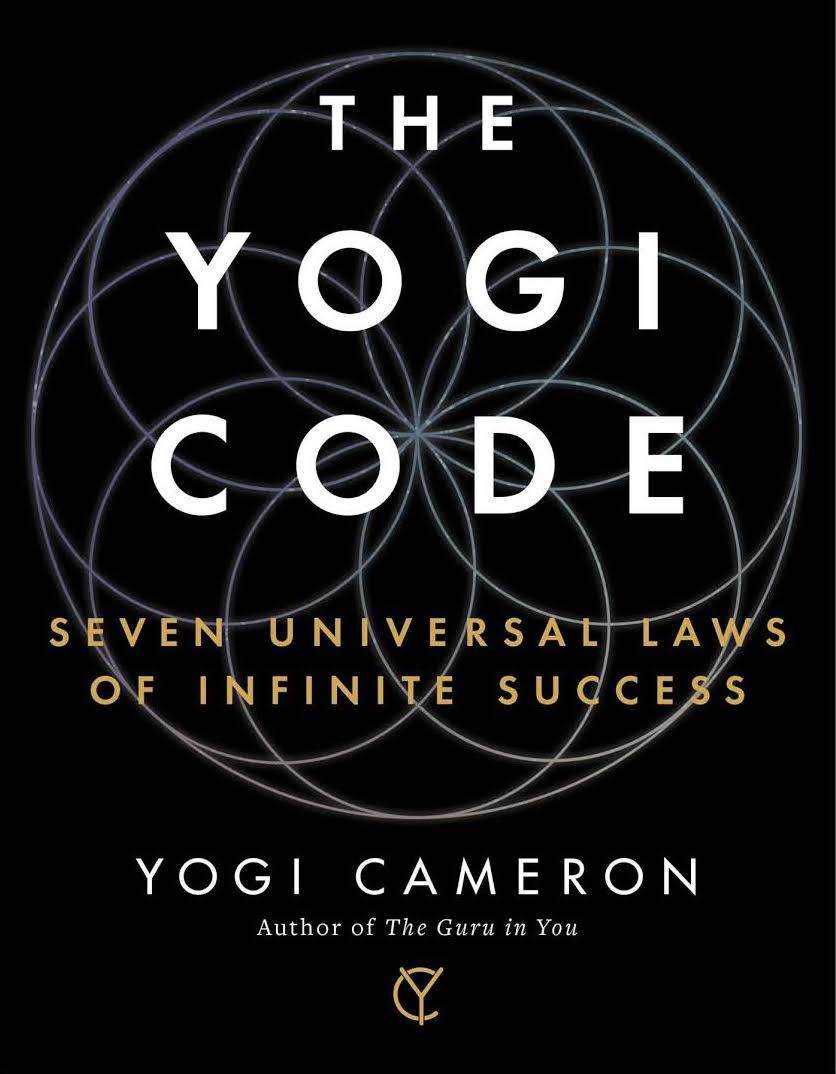
Courtesy of Yogi Cameron
VA: In your book ‘The Yogi Code’, you mentioned an anecdote during a trip to Cambodia, when you were speaking to a man in an office who told you, ‘We know soda and junk food are really bad for us, but we want to be modern, live modern, think modern, and become a developed country quickly so we are not considered a third world country anymore’ –when you see people mirroring Westerners’ bad habits with the aim of being accepted and being seen as evolved, what do you make of that?
YC: I just observe it, I don’t think much of it because after all the traveling and the fashion business, I find that everybody is just the same, nobody is different, but everybody thinks differently. What you think, you end up following. The path of Yoga is to be able to change that thought process into something more balanced, more unified, something more expansive, something limitless. When I see people being limited I can tell them what the Yogi philosophy is about; it’s about expansion, it’s not about thinking, ‘You drink Coca Cola so you’re going to be Western’. That’s how they sell things to you. If you buy into that concept, then you’ve decided that’s true for you. So, it’s helping people understand that whatever they do, whatever they think, that becomes a part of them. So, if you don’t want to think in a limited way, you need to start expanding your mind beyond just the way you’re thinking today. In India, when I go to the city, I see people drinking Coca Cola; now they’re eating a lot of meat when India used to be mainly vegetarian, and they have picked up a great deal of Western culture. They also have more diseases. Things have come full circle, India was spiritual, now the Western culture is trying to become spiritual and they bring it back to India and it’s like that, a circle. Well, let’s see if it works, because at the moment, it’s not working so well.
VA: Do you think that mankind could one day understand love differently, not as needs and desire and possession, but as true love, which is freedom?
YC: This is why I put love as the last chapter of ‘The Yogi Code’. Love is like meditation, it’s something you will fall into as a result of doing all the other work. It’s almost like you have to clean the pathway for love. Love already exists, you don’t need to find it, you already have it; everything you need is there and in the same way as meditation, you can’t just sit and start meditating, it doesn’t happen like that. First, you start to set your routine in a way that makes your life very simple. Your routine should be very simple, then that starts to keep you grounded, then you start doing your spiritual practice every day. I put five practice that people can do every day. Now you have grounding and foundations (this is what I was talking about in education). Once you have this grounding, you can start on the third code, knowing yourself; so, study, who you are, why you like the things you like, why you do the things you do, start to get to know yourself, ‘When I get to know myself, I only focus on the things that are for me and not for somebody else. So now in these three codes, I’ve really simplified my life and become very focused. Then I can start to set intentions, which is the fourth code. So, I’ve grounded myself, I’m doing my spiritual practice, I know myself, and now I’m setting intentions. These four steps are really the steps that lead to the rest, then my intentions will bring me to my purpose because my intentions are about who I am. Then I’m starting to live my purpose, I can be of service to everybody, humanity and the world, because I feel purposeful’. It’s when you open that door of service to everybody, you feel unity with everybody, you feel that kindness and that compassion, now you can feel love, now you can experience love through your actions and the things you do. That’s why Yogis put codes one after the other, because if your routine is all over the place, you won’t do your spiritual practice, and if you don’t do your spiritual practice, you won’t know yourself. So, you have to do them one by one.
...Love is like meditation, it’s something you will fall into as a result of doing all the other work.'``

